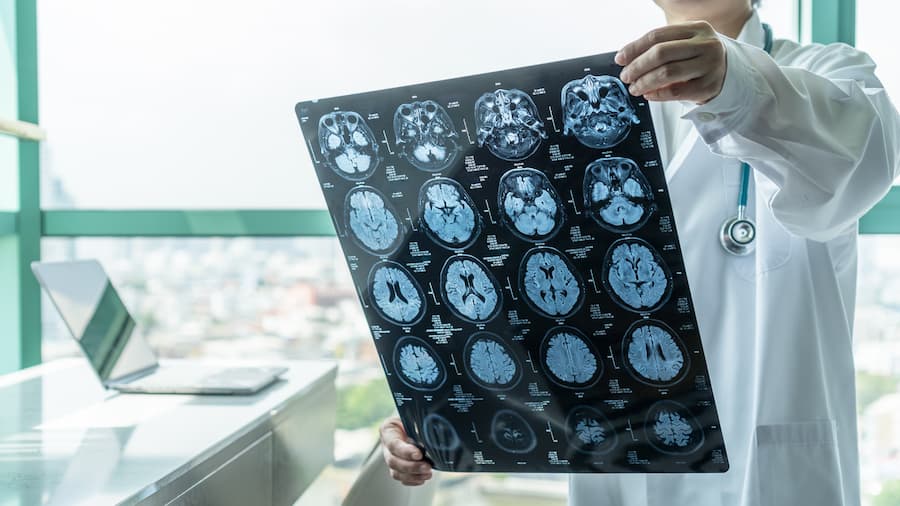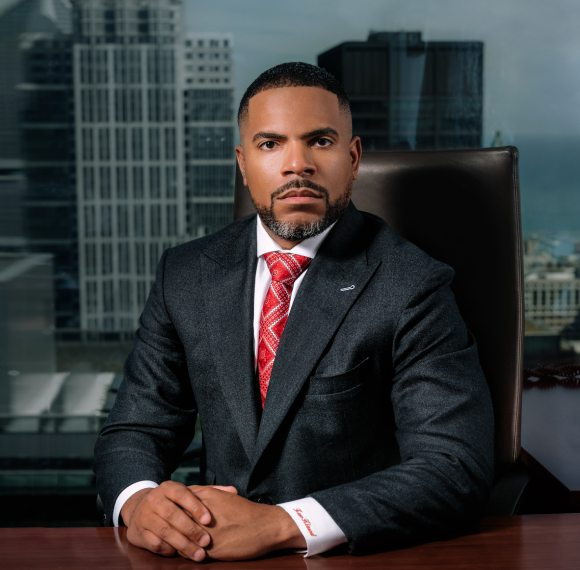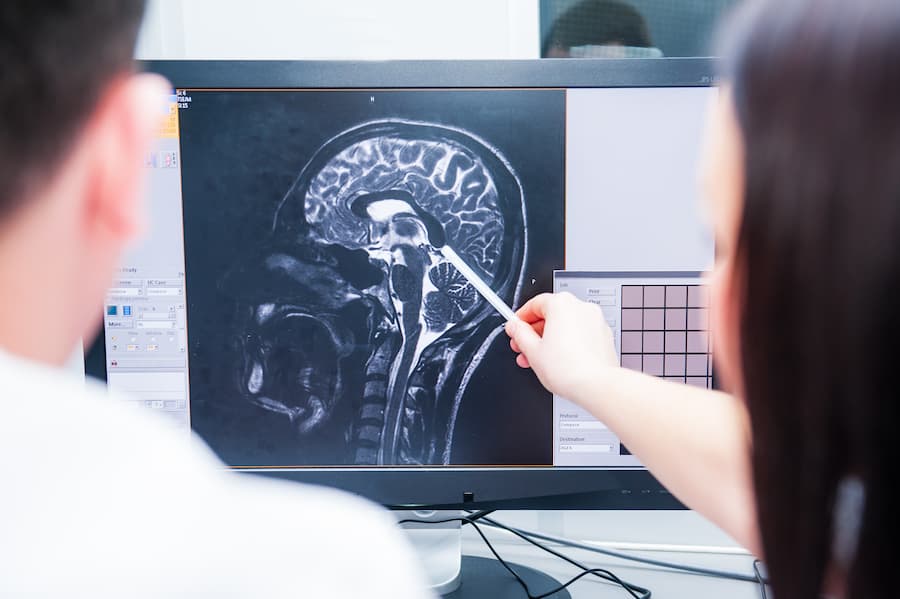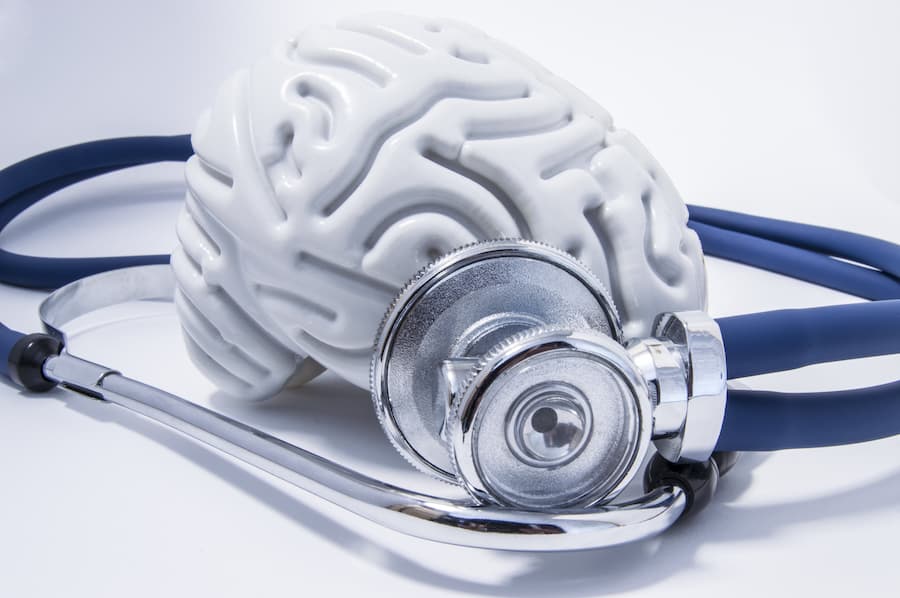Types of Brain Injuries That Accident Victims Suffer

One type of head injury is an exterior head injury. This type of injury typically happens when a blunt object strikes the top or sides of the head, often penetrating the head and creating a severe wound. If the object pierces the brain, the accident victim can suffer a permanent brain injury or even death. These types of head injuries may occur when a defective product explodes, or a piece of machinery or equipment penetrates the accident victim’s head during a construction accident or car crash.
In addition to blunt head injuries, concussions are another common type of head injury that accident victims suffer. A concussion is brain tissue damage that happens when the accident victim’s brain strikes the side of the skull. This movement occurs when an accident victim suffers a forceful impact to their head, such as during a car accident when their head strikes the steering wheel or headrest.
When the accident victim’s brain strikes the side of the skull, bruising or other damage may occur. In addition, the brain’s neurons and axons, which serve as the internal hardware system and relay messages to and from the brain and other body parts, may become disrupted. As a result, the accident victim may suffer severe mental complications.
Concussions frequently come with both short-term and long-term symptoms.
Some short-term symptoms often associated with concussions include:
- Severe headaches or migraines
- Nausea
- Vomiting
- Dizziness
- Memory loss.
If a concussion persists, the accident victim may experience post-concussive syndrome, long-term or permanent memory losses, or other debilitating effects.
Finally, some brain injuries cause the accident victim to fall into a temporary or permanent coma. While the accident victim is in a coma, they are typically unresponsive to external stimuli. If the accident victim suffers a permanent coma, they may wind up in a permanent vegetative state and rely upon life support. Moreover, a comatose individual may depend on caregivers for around-the-clock care.
If a person you love suffered any of these traumatic head injuries, seeking prompt medical treatment as soon as possible after an accident is essential. Failing to promptly treat for a concussion injury or other severe head injury may cause the injury to become significantly worse. This possibility is widespread with concussions since symptoms do not always appear immediately. In fact, it might take days or even weeks for concussion symptoms to fully manifest.
If you visit a hospital emergency room immediately after your accident, the medical provider can order the necessary brain scans or MRIs to ascertain the full extent of your injury. The medical provider can also recommend additional treatment you may need to undergo in the following days and weeks. For example, you may need to follow up with your primary care doctor or a neurologist for ongoing treatment.
During this time, a knowledgeable Hammond brain injury attorney at Midwest Injury Lawyers can begin gathering your medical documentation, police reports, witness statements, and other potential evidence to use in the claims-filing process.
What are Accidents That Cause Traumatic Head and Brain Injuries?

Motor vehicle accidents typically happen when drivers don’t watch the road or violate traffic laws, such as by initiating aggressive driving maneuvers, speeding, failing to yield the right of way, failing to use turn signals, or operating a vehicle while fatigued.
Serious car crashes may also happen when people drive while under the influence of alcohol or drugs. If a drunk driver incurs a DUI conviction, they may incur both criminal and civil penalties. On the criminal side, they may have to spend time in jail, pay high monetary fines, or attend alcohol and drug rehabilitation classes. On the civil side, they may have to pay monetary damages through their insurance company if they cause an accident that leads to head injuries or other physical damages.
In addition to forceful traffic accidents, some severe head injuries result from premises accidents, including slip and falls. These types of accidents typically happen when property owners fail to maintain their premises carefully and safely. For example, they might forget to clean up a spill on the floor, repair a staircase, or replace defective carpeting and flooring materials.
As a result of the property owner’s negligence, a property visitor might fall on the ground, land on their head, and suffer a concussion or other severe head injury. When that happens, the accident victim can file a personal injury claim with the property owner’s insurance company, seeking various monetary damages.
Head trauma is also common in construction accidents, where a construction worker or builder must work around heavy and dangerous equipment every day. When a construction worker falls from a tall ladder or piece of scaffolding, they may land on their head or back, resulting in a severe brain injury. Alternatively, a construction worker might become involved in a construction vehicle accident. As a result, the force of a collision might cause severe damage to the head or brain.
If you or a person you care about suffered a severe head injury in an accident that someone else caused, the experienced Hammond brain injury attorneys at Midwest Injury Lawyers can help. Our legal team can evaluate your accident circumstances, help you file a personal injury claim on your behalf, and negotiate with insurance company adjusters for a fair monetary settlement.
Proving a Head Injury Case
To recover monetary damages for a head and brain injury, the accident victim, not the at-fault party, has the legal burden of proof in the case. The individual or entity who caused the subject accident does not need to prove anything or satisfy any legal burden in the case. Instead, the sole legal burden of proof for recovering monetary damages rests with the accident victim.
First, the accident victim must show that the other party owed them a legal duty they subsequently violated. For example, if the head injury victim suffered their injury in a car crash, they must demonstrate that another driver violated their duty of care by breaking a traffic law or otherwise acting unreasonably under the circumstances.
Similarly, in the context of a premises accident, the premises visitor must establish that the property owner was aware of the hazard or defect yet failed to take prompt remedial measures to correct the situation.
Next, the accident victim must prove that their accident was a direct result of the at-fault party’s negligence. In other words, there must be a causal relationship between the responsible party’s negligent actions or inactions and the subject incident.
Finally, the brain injury victim must establish that their brain injury directly resulted from the accident.
When proving the legal elements of a brain injury case, the medical documentation and the accident victim’s in-court testimony may not be sufficient. Instead, the accident victim and their lawyer may need to rely on expert testimony to help them prove the legal elements of their claim. Medical experts can particularly be beneficial when it comes to proving a brain injury case, as this is a complex and often misunderstood injury.
At Midwest Injury Lawyers, our experienced legal team can help you satisfy the legal elements of your brain injury claim or lawsuit and help you retain experts to successfully prove your case.
Potential Monetary Damages for Brain Injuries
If you suffered one or more brain injuries in an accident resulting from negligence, you might be eligible to recover various monetary damages through settlement or litigation.
The damages an accident victim can obtain in a brain injury case primarily depend on:
The nature and extent of their brain injury
Whether or not it is permanent
The cost of medical treatment the accident victim needed and will need in the future
Whether the victim missed work
The effects of the injury on their everyday life
The anticipated duration of their injury
First, brain injury victims can receive monetary compensation for their medical expenses stemming from their injuries. If a neurologist or other medical expert determines that the accident victim may need to undergo a medical procedure in the future, such as brain surgery, the accident victim can recover the anticipated costs of that ongoing treatment.
In addition, if a brain injury victim had to miss time from work or never returned to their former occupation because of their injuries, they may be eligible to bring a successful claim for lost earnings or loss of earning capacity.
Brain injury victims can also receive monetary damages for long-term care costs, permanent disability, pain and suffering, mental distress, loss of use of a body part, loss of life enjoyment, loss of quality of life, and loss of spousal companionship or consortium, stemming from the brain injury.
To recover monetary damages following an accident, the accident victim needs to file a claim or a lawsuit in the court system. While the majority of brain injury claims settle at some point along the way, others do not settle. When that occurs, the accident victim may need to rely upon a jury to render a favorable decision in their brain injury case. At a civil jury trial, the parties present evidence, and the jury decides on the total monetary damages to award the accident victim.
Our experienced legal team can help you make intelligent and informed decisions during your claim or lawsuit. Our goal will be to help you maximize your total monetary recovery either through a favorable financial settlement or litigation result.
Call an Experienced Hammond Brain Injury Lawyer Today
If you or a person you care about suffered a brain injury in an accident someone else caused, you should take proper legal action to recover monetary damages. Accident victims must file a lawsuit within two years of their accident date, according to the state statute of limitations. Unless a truly exceptional circumstance exists, accident victims who file a lawsuit after the deadline expires will no longer be eligible for monetary compensation. Reach out to a Hammond personal injury lawyer.
Given the short statutory period, accident victims must take legal action right away after their accident. At Midwest Injury Lawyers, our legal team can begin investigating your accident circumstances, negotiating with insurance company adjusters, and filing a lawsuit in your case if that step becomes necessary. If we must litigate your case, we can represent you at all court proceedings, introduce evidence on your behalf, make convincing arguments, and pursue the highest possible damage award from the jury or arbitrator in your case.
For a free case evaluation and legal consultation with a skilled Hammond brain injury attorney, please call us at (219) 200-0151 or contact us online today.
Client Testimonial
“We are so happy with our decision to utilize the services of Midwest Injury Lawyers. They were so kind and kept us informed and educated on our options to make the best decision for our family.” -Leah C. ⭐⭐⭐⭐⭐
Read more of our Google reviews.
Midwest Injury Lawyers – Hammond Office
2901 Carlson Drive Suite 363,
Hammond, IN 46323
Phone: (219) 200-0151
A Word from Our Brain Injury Attorney
With us on your side, brain injuries are fully investigated, represented, and defended. We don’t settle for anything less than complete justice on your behalf.
– Chester L. Cameron

Request a Free Consultation
Tell our experienced team about your accident and/or injuries. One of our personal injury attorneys will contact you to schedule a free case evaluation. Remember: you won’t pay for anything unless we secure a compensation on your behalf.
Call (312) 786-5881 or send us a message online to get started.






